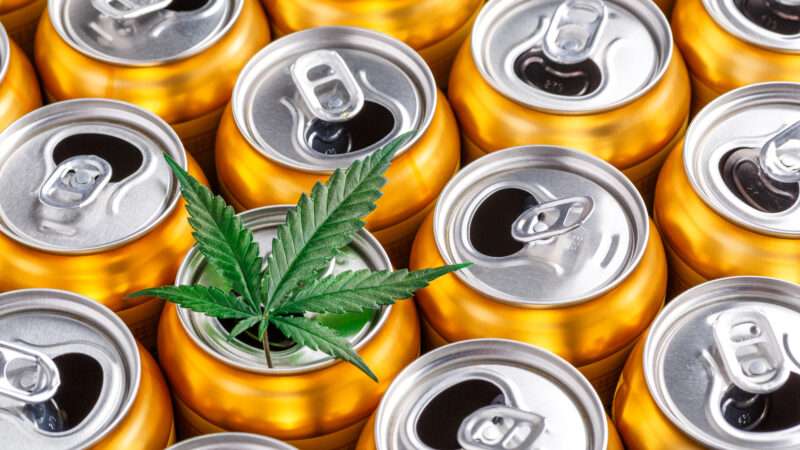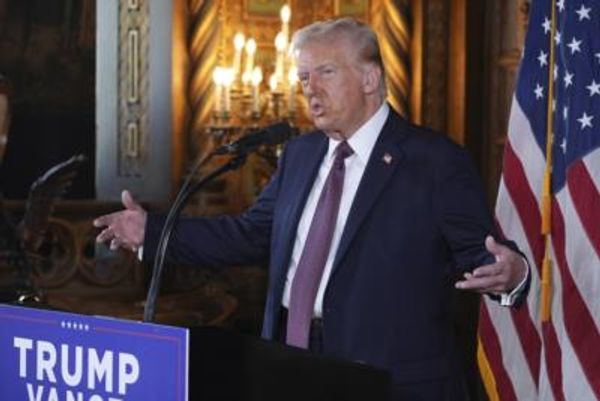
A trade group representing the American brewing industry released proposals on how Congress should regulate its competitors. Unsurprisingly, they recommend a heavy hand.
The Beer Institute is a trade organization that "represents the beer industry before Congress, state legislatures and public forums across the country…as the recognized and authoritative source of information on aspects of the industry." Last week, it released a list of "guiding principles" calling for restrictions on intoxicating CBD products.
"The Beer Institute supports efforts underway by lawmakers to close an unintended federal loophole that is enabling the proliferation of unregulated intoxicating hemp products across the country, including those containing synthetically derived THC," the statement said. "Intoxicating hemp and cannabis products are fundamentally different than beer and the taxation of them by government entities should reflect these stark differences just as governments at all levels in the United States have consistently reaffirmed the different tax treatment between beer, wine and hard liquor."
While marijuana remains illegal at the federal level, Congress inserted a provision into the 2018 farm bill legalizing hemp by defining it as part of the cannabis plant containing "not more than 0.3 percent" delta-9 THC, the psychoactive ingredient in marijuana. Soon thereafter, chemists began to manufacture intoxicating products with CBD derived from hemp that contained delta-8, a milder form of THC not mentioned in the farm bill.
The industry for intoxicating hemp-derived products exploded, and state laws have struggled to catch up. "State regulations governing hemp products vary widely and are unevenly enforced, creating a patchwork of rules that can change dramatically from one state to the next," according to a policy brief by Geoffrey Lawrence and Michelle Minton of the Reason Foundation, the nonprofit that publishes this magazine. There are currently no federal laws that specifically address these products, including their legality—they are simply assumed to be legal based on the phrasing of the farm bill, and Congress has struggled to pass an updated version for more than a year.
In its guidelines, the Beer Institute takes no position on marijuana's legality, merely allowing that "the legalization of consumable cannabis products is for American voters, state legislatures and Congress to decide." But if and when Congress does get around to addressing intoxicating hemp products, the group recommends it pull no punches.
"If legalized, the Beer Institute supports the establishment of a federal excise tax rate on intoxicating hemp and cannabis, with the tax rate set higher than the highest rate for any beverage alcohol product," the guidelines stipulate. "Regulators at the federal, state, and local levels should prohibit co-location of the sale of alcohol beverages in the same retail venues as intoxicating hemp and cannabis products, if legalized, and further, to avoid consumer confusion, intoxicating hemp and cannabis products, if legalized, should only be sold in dispensaries."
In addition to smoke shops, delta-8 products are often sold in gas stations and convenience stores, where they directly compete with alcohol: Among 12,000 stores and bodegas between January and July 2021, nearly 20 percent of all sales were for beer, cider, and malt beverages, while nonalcoholic beverages comprised only 13.3 percent. A trade group advocating for the beer industry is now asking Congress to forbid a competitor from sharing shelf space—not to mention tax rates intentionally set higher than for beer.
The proposal presents a classic "bootleggers and Baptists" scenario, in which groups with completely separate ideologies nonetheless come together to oppose a substance, even though their reasons are completely different.
"The classic coalition behind 'blue laws' that ban liquor sales on Sunday consisted of Baptists, who didn't want anyone drinking on their day of rest, and bootleggers, who enjoyed windfall profits on Sundays," James Plummer wrote in the November 1997 issue of Reason.
Earlier this year, Republicans in Florida passed Senate Bill 1698, which would have banned hemp-based products containing delta-8. "If we say…you can't buy [these products], and you're a drug user, then sure, maybe you'll go to a drug dealer. Maybe you'll do the right thing and stop using drugs," then-state Rep. Tommy Gregory (R–Sarasota) said at the time. (Gov. Ron DeSantis vetoed the bill, saying it "would introduce dramatic disruption and harm to many small retail and manufacturing businesses in Florida.")
Similarly, a major representative of the beer industry is advocating tougher rules and regulations on hemp-based products—presumably out of fear of competition as much as concern about user health.
There may very well be reason for Congress to pass legislation addressing the proliferation of intoxicating hemp-based products. As Lawrence and Minton write, unlike with marijuana, delta-8 "consumers face an increasingly confusing array of products of uncertain quality while businesses must navigate a shifting and uncertain regulatory environment." But any laws to address intoxicating hemp should reflect reality, not the overblown concerns of moralists or competitors.
The post Beer Lobby Wants Restrictions and Higher Taxes on Intoxicating Hemp Products appeared first on Reason.com.







